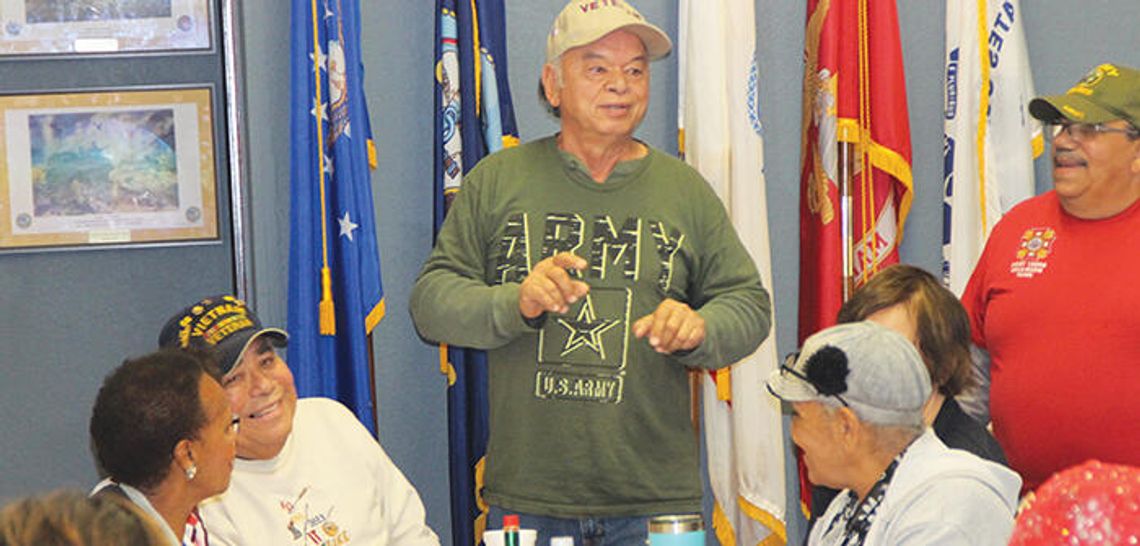[dropcap]I[/dropcap]t’s comradeship, community, and perhaps the hot coffee and scrambled eggs that draw veterans to Center Street in Kyle on Friday mornings.
Jimmie Quintero, organizer of the weekly breakfast at the Kyle/Buda Veterans of Foreign Wars (VFW) Post 12058, can be found slightly hunched over a skillet when he is not greeting fellow veterans who walk through the door.
Organized by Quintero and his wife, Shin, the gatherings give opportunities for vets to meet other vets in the community and reminisce, as well as help other veterans who may be in need, he said.
“Once you’ve been in the military, you are your own family,” Quintero, who served in the Korean Demilitarized Zone from 1978 to 1979 in the U.S. Army as an intelligence officer, said.
This unique connection that veterans have allows veterans to give each other support and understand the challenges they may be facing, Quintero said.
He said sometimes veterans may not be aware of the benefits that they are granted due to their service.
When Vietnam veterans were once written off as crazy, it has now been recognized as post traumatic stress disorder (PTSD), which many current veterans are facing.
Quintero said he’s encountered veterans dealing with illnesses due to smoke they inhaled when oil wells were lit on fire during their tours in the Middle East.
No matter the issue that a veteran may face, Quintero said VFWs do their best to find the necessary resources. That includes guiding them to Jude Prather, former San Marcos City Council member and the current Veteran Affairs Officer in Hays County’s Veteran Services Office.
Another resource is Operation Warrior’s Path, a nonprofit based in Austin that provides therapy for veterans dealing with severe PTSD.
The group conducts its work in a retreat space in Dripping Springs, said David Watson, intake officer and director of marketing.
He cites high suicide rates among veterans as the need for therapy.
According to a 2016 U.S. Department of Veteran Affairs, Office of Suicide Prevention report, an average of 20 veterans died by suicide each day in 2014.
A challenge that veterans face receiving therapy is that they don’t ask for help.
“They are used to providing help. ‘We watch our buddies back, we won’t watch our own,’ ” Watson said is the mindset that many veterans have.
An Army vet who served in the fourth infantry division, Watson said the program is staffed by volunteers who are veterans themselves. This “brotherhood” is a huge factor in providing effective therapy.
The program, called “door kickers,” is geared towards those who have served in the front line. Veterans complete a four to seven day stay at the retreat center in Dripping Springs, followed by long distance therapy and shorter stays to the retreat house throughout a year, Watson said.
Participants in the program also partake in activities such as fishing, archery and equestrian activity.
The program they offer is meant to be tailored to the specific needs of the veteran in order for the therapy to be most effective, he said.
One veteran in the program required that his dog cleared each room in his house in order for him to feel secure in entering.
What he said is common amongst many veterans suffering from PTSD is difficulty having a full night of rest.
Therapy is also extended to spouses and or primary caregivers of veterans who are participating in the program, he said.
He said it’s important that veterans and their family be in tune with the program, because otherwise it can be “a house in chaos.”
“We deal with these soldiers and their spouses to make sure they remember that they have value,” he said.










